Parkinson’s care

Specialist Parkinson’s support at home
Our person-centred home care can minimise the disruption of a Parkinson’s diagnosis.
Parkinson’s is a life-changing condition, but being diagnosed with Parkinson’s doesn’t mark the end of an individual’s life. At Helping Hands, we offer compassionate, nursing-led Parkinson’s care in the comfort of your own home.
Whether you’d benefit from a few hours of support a week to help during the early phase of the condition, or more comprehensive care at the palliative, complex stages of Parkinson’s – we can help.
Parkinson’s progressively impacts part of the brain, and leads to a number of symptoms that are difficult to manage, such as:
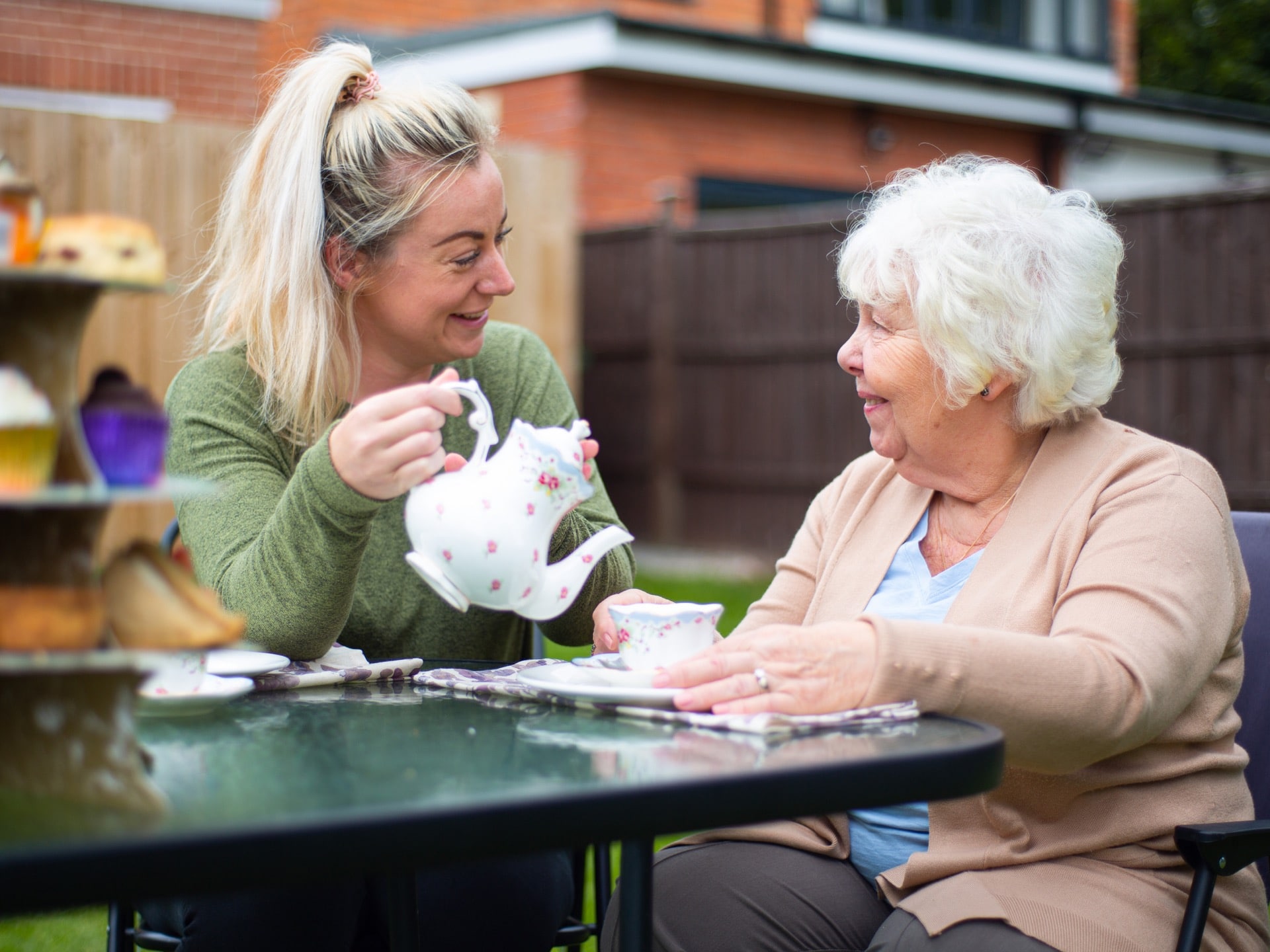
Tremors
Slow movement
Memory problems
Loss of smell
Stiff muscles
Speech changes
What is the aim of Parkinson’s care?
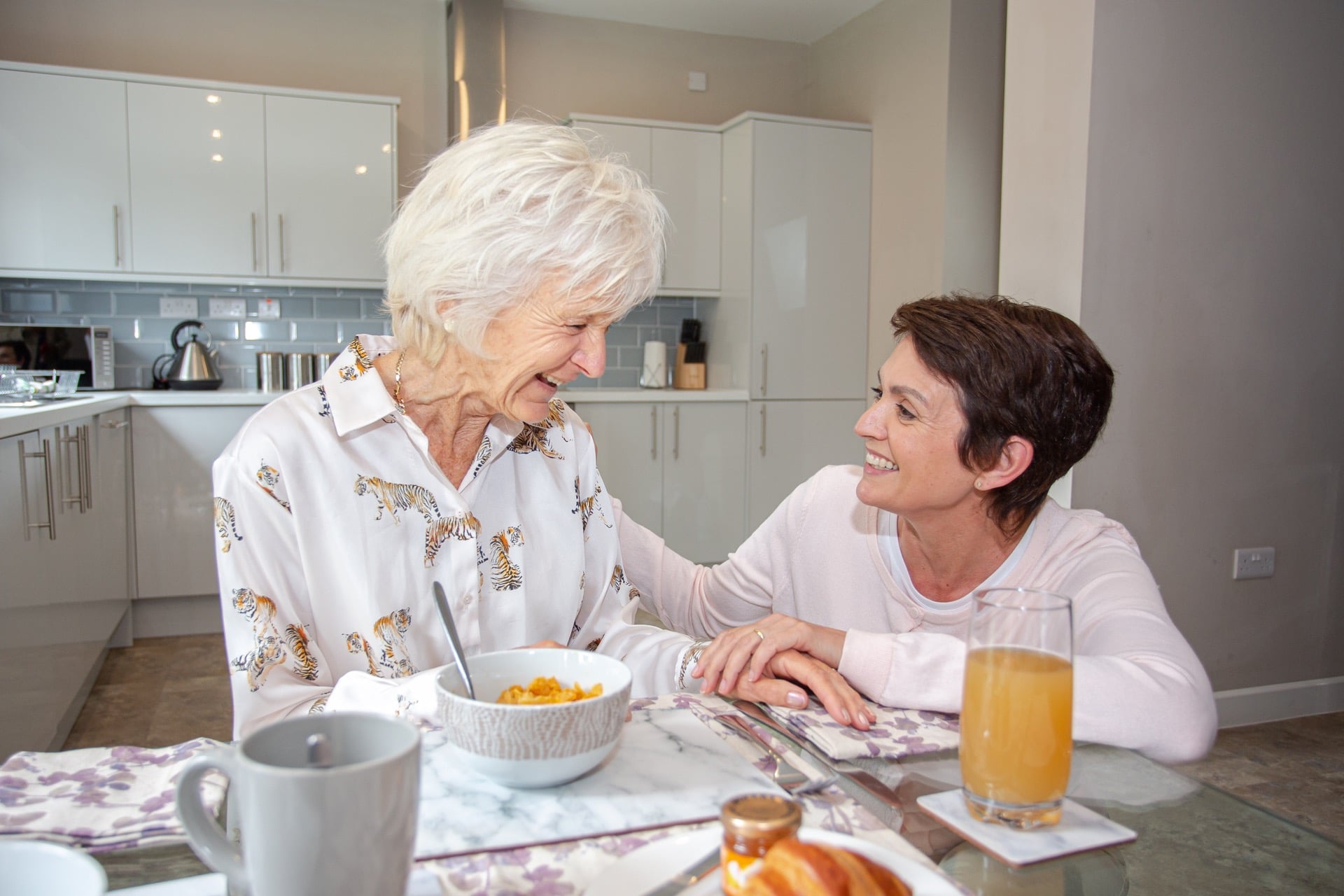
Parkinson’s care helps you to manage your symptoms and live your life to the fullest.
Whilst we know that there is no recognised cure for Parkinson’s, the main purpose of a Parkinson’s carer is to help slow down the progression of your symptoms and allow you to manage them.
Parkinson’s care also focuses on supporting the physical, practical and emotional needs of the customer and the wider family. Parkinson’s is a condition that can impact mental health, often in the form of anxiety or depression, which is why we adopt a truly holistic approach to the support that we provide.
Condition-led care
Every case of Parkinson’s is unique, which is why we’ll always offer you a care plan that is designed around your personal circumstances and condition
Responsive support
Our Parkinson’s care is responsive and can be adapted as your needs change, which is essential when supporting a complex medical condition
Fall prevention
We’ll work with you and your Occupational Therapist to make sure your home is accessible and free of trip hazards, and that you’re confident in your ability to move around
A familiar environment
Staying at home for care means you’ll be able to manage and adapt to your symptoms in a familiar environment where you’re comfortable and secure
Experienced carers
You’ll get dedicated support from carers who are fully trained and experienced in caring for customers with Parkinson’s
Emotional support
A significant part of our holistic approach to Parkinson’s care is ensuring that both and your loved ones are emotionally supported
Parkinson’s home care from dedicated carers
Care that supports and empowers you to live comfortably and confidently at home.
Our Parkinson’s care services work on the premise that we empower you to stay in control of your routine, your lifestyle and your medication. We will encourage you to lead as active and joyful a life as possible, and to maintain your independence. However, our carers are all trained and equipped to help you out practically around your home with just about anything you require, including:
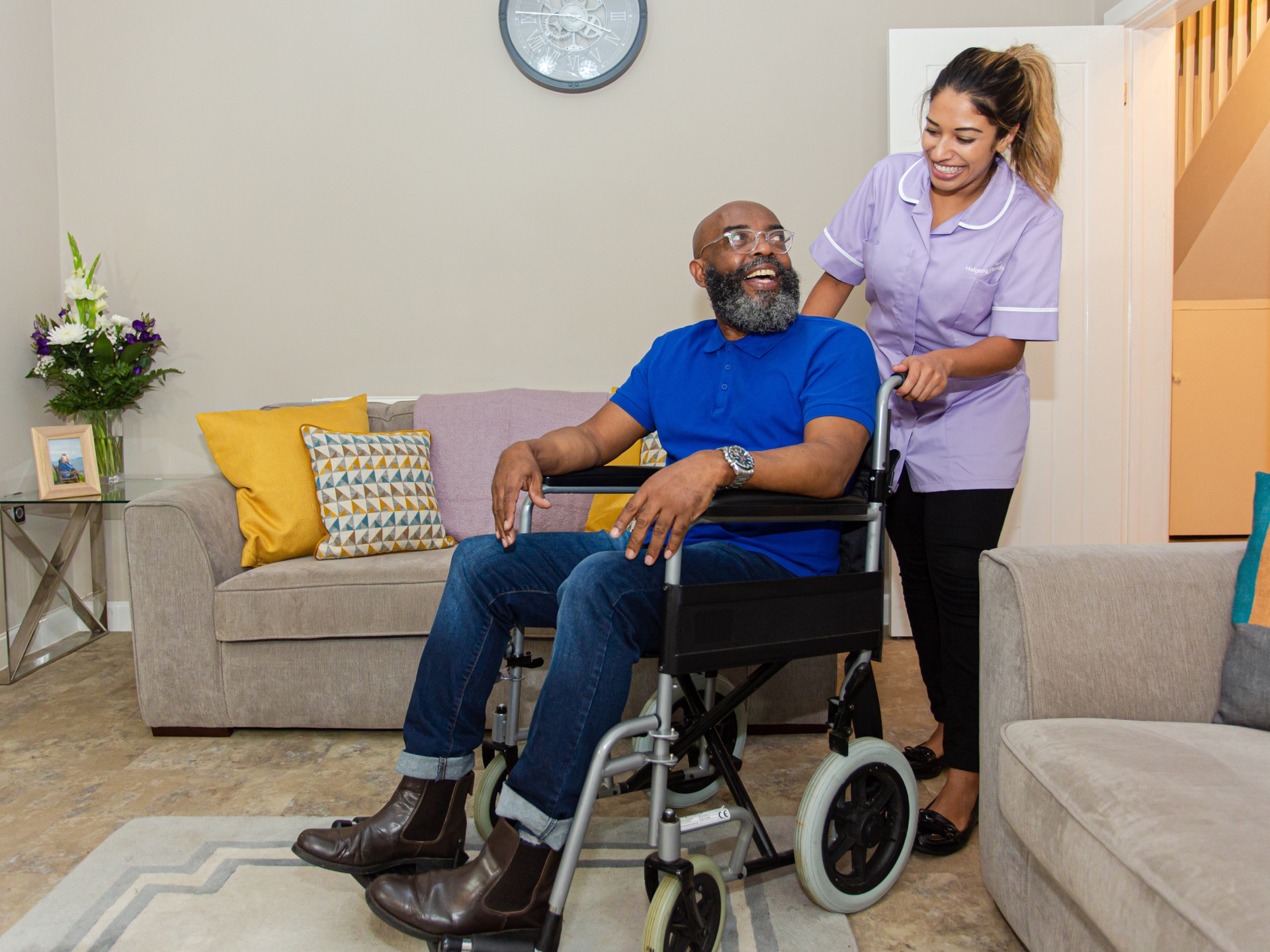
Personal care
As part of your care plan, your carer can provide discreet, dignified personal care – assisting with bathing, dressing and toileting
Preparing meals
Staying at home for care means you can ask your carer to prepare your favourite meals and snacks at the times that you’re used to
Cleaning and tidying
Our carers can help out with any aspects of the housework you might be struggling with, or help you undertake them yourself
Doing the laundry
Your carer can assist with menial but time-consuming tasks, such as doing the laundry, allowing you to focus on your well-being
Looking after pets
With help from your carer, there’s no need to worry about your furry friend continuing to get the food and exercise they need
Friendly companionship
All of our carers have been recruited for their approachable personalities and make for great companions as well as helpers
Hear from people with similar conditions
Find out more about how we support people with condition-led care at home, and the difference our wonderful carers are making to their lives.
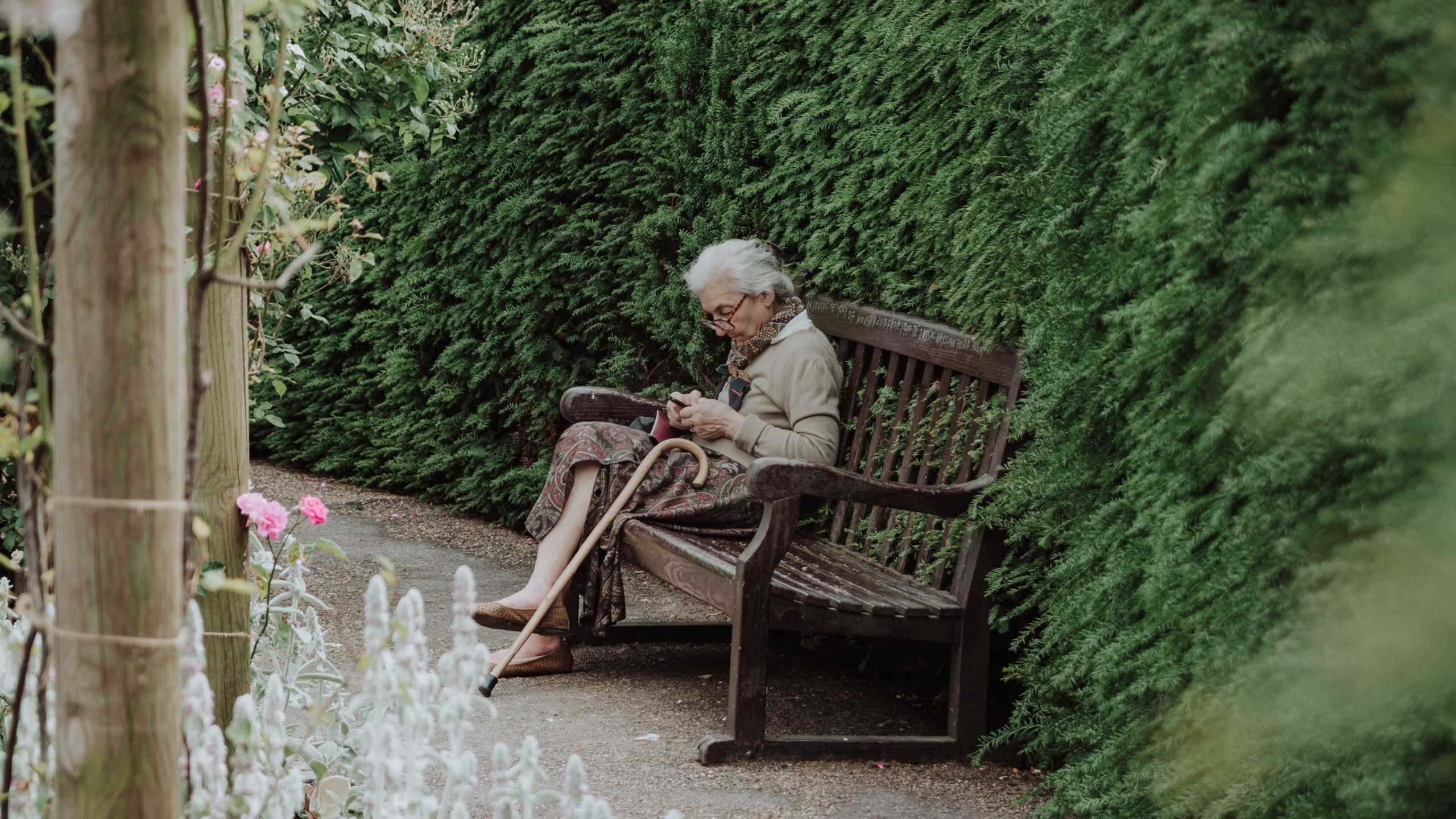

What Parkinson’s care options do we offer?
Your Parkinson’s care needs will be unique to you. For some, that may mean that 24-hour support from a live-in carer is required, whilst others will simply need visiting care for a few hours a week.

Visiting care gives you flexibility in your support plan, and ensures you get the type and level of support you require to maintain your independence as you live with Parkinson’s.
Visits from 30 minutes a week
Flexible support
Condition-led care

Live-in care offers a more comprehensive level of support, and involves having one of our wonderful carers come to live with you in your home on a full-time basis.
24-hour care
Life on your own terms
Handpicked carer
Why choose Parkinson’s care at home?
Finding the right care option for someone living with Parkinson’s can be a complex process. At Helping Hands, we provide Parkinson’s care to people in their own homes, because we believe the benefits of care at home are simply too good to ignore.
The best carers in the UK
At Helping Hands, our carers are at the heart of everything great about our care services.
We’re not shy about singing the praises of our carers, because they truly are exceptional people who constantly go above and beyond to ensure all customers receive the transformative care they deserve.
Every carer has been selectively recruited for their compassionate, dedicated approach to their roles, and undergoes numerous background checks to make sure they’ll be a perfect fit for us and for you. Plus, all carers receive our industry-leading training, which equips them to deliver expert Parkinson’s care at home.

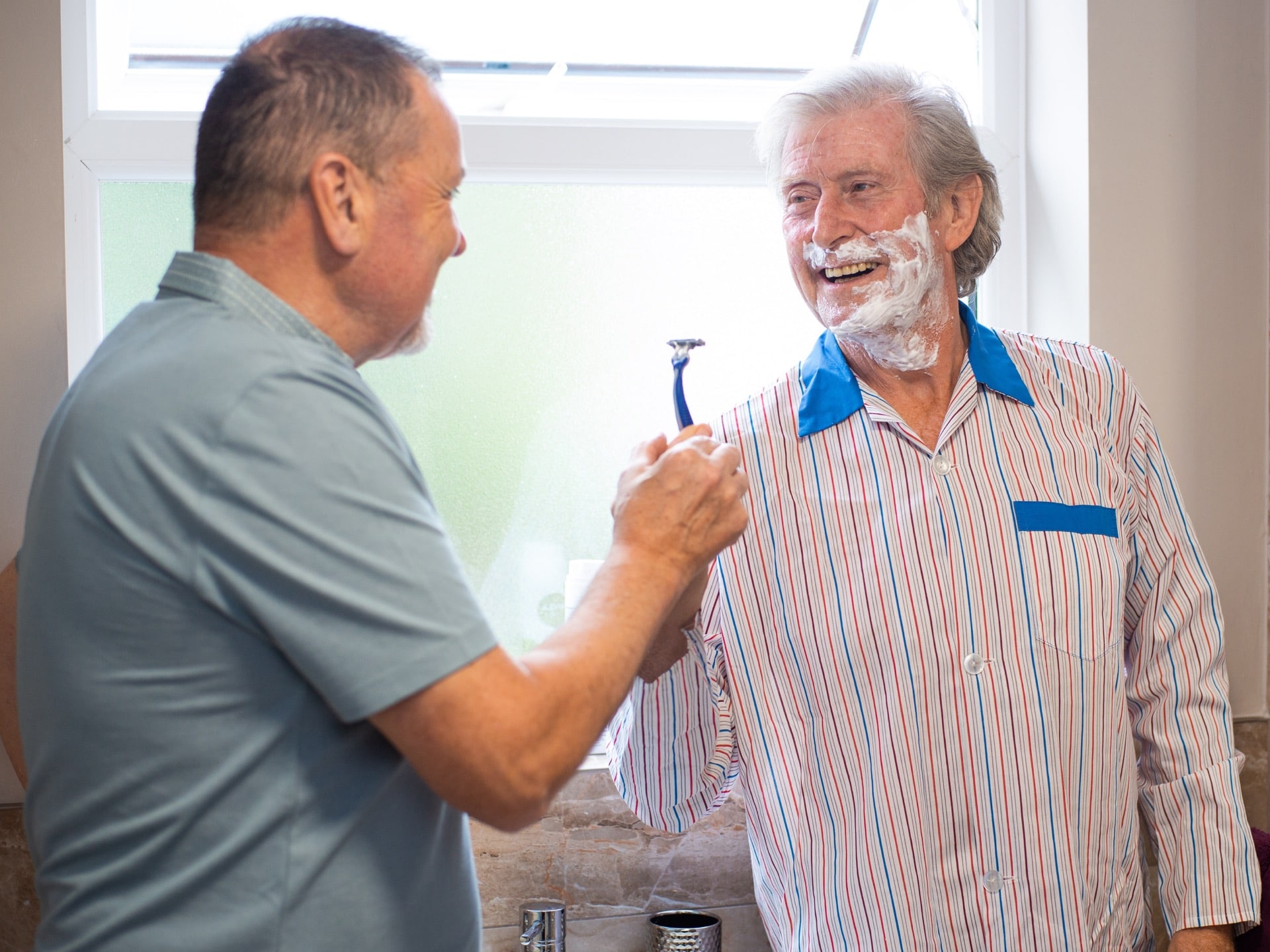
Caring for someone with advanced Parkinson’s
Caring for a loved one in the advanced stages of Parkinson’s takes dedication and planning.
Whilst it is possible to care for a loved one with late-stage Parkinson’s by yourself, it’s important to bear in mind that they’ll have a complex set of needs that require personalised support and effective forward planning. Here are some steps you can take to make sure you’re best placed to assist your loved one at home:
Adapt the home
Simplify routines
Arrange massage therapy
Recognise changing needs
Implement regular exercises
Support with medications
Work with a speech therapist
How to arrange Parkinson’s care
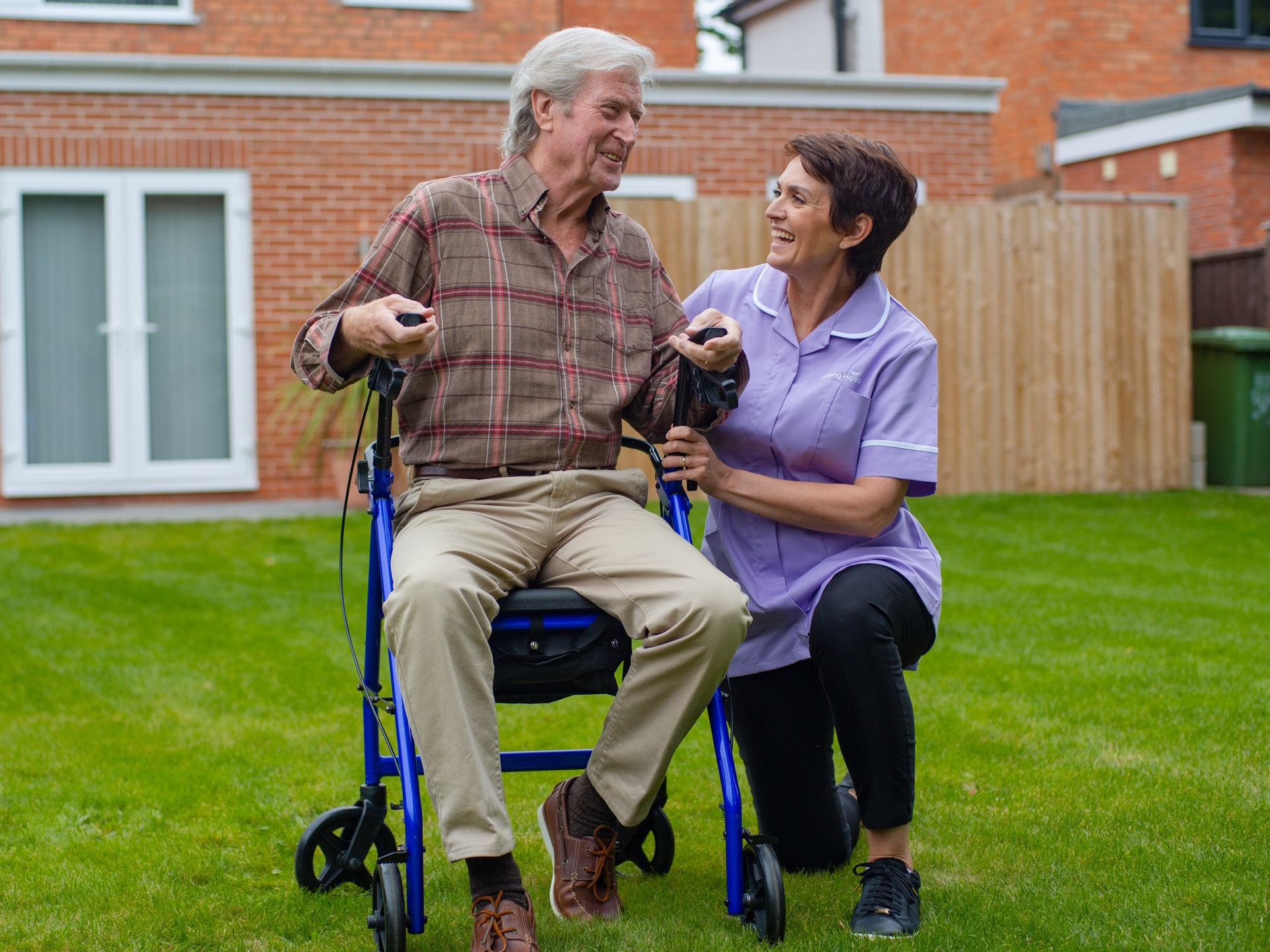
Speak to our team
Call our team of experts to talk through your options and any questions you may have.
Free home care assessment
Your local Helping Hands manager will visit you to discuss your Parkinson’s care needs and learn about the type of carer you’re after.
Speak to our team
We’ll help to match you with a carer who meets your preferences and has the right skills and experience for your needs.
Fully regulated by the CQC / CIW
Here at Helping Hands, our Parkinson’s care service is fully managed and regulated by the Care Quality Commission (CQC).
From your very first phone call to our friendly team, every aspect of your home care service is independently monitored and regulated by the CQC and Care Inspectorate Wales (CIW).
What is the significance of being a regulated care provider?
What is a regulated care service?
A regulated care service is one where all aspects of the care are independently monitored and vetted
Why do we opt for regulated care?
We choose to be regulated because we want our customers to be fully assured about our services
How does regulation affect my care?
A CQC/CIW-regulated service means all of your care provision is industry approved and standardised
Parkinson’s care FAQs
-
Can Parkinson’s be treated at home?
-
Not only can Parkinson’s care be treated at home, it is also often the best place to be. Staying at home means you’ll remain in a familiar, comforting environment, and can have a support plan that’s fully tailored to your personal needs and wishes.
-
Can Parkinson’s disease be cured?
-
No cure has been invented for Parkinson’s disease, but treatments and dedicated care support are available to help relieve the symptoms and maintain your quality of life.
-
How do you care for a person with Parkinson’s?
-
It is possible to care for a loved one with late-stage Parkinson’s by yourself. However, there are some steps you should take to make sure you’re best placed to assist your loved one at home, such as simplifying your loved one’s routines, adapting the home environment and working alongside therapists.
Page reviewed by Carole Kerton-Church, Regional Clinical Lead, on June 1, 2023.
How we wrote this page
This page has been produced referencing key insights and data from external experts, trusted medical sources and our team of in-house specialists. We have worked hard to ensure that all information is as accurate as possible and reflects current consensus at the time of writing and reviewing.
